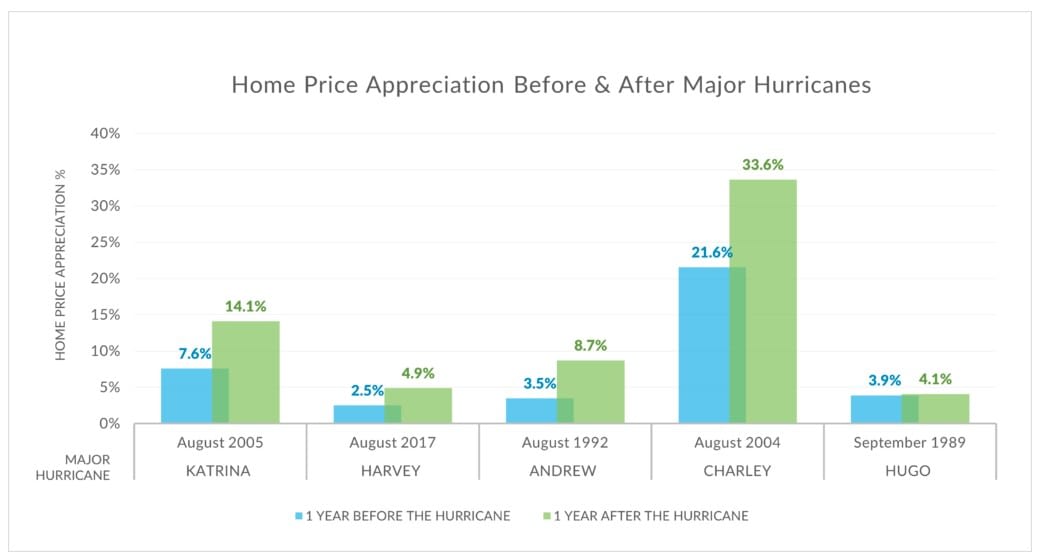Navigating life after a hurricane forces entire communities to confront uncertainty while dealing with varied emotions. The pursuit of stability and normality requires patience in the immediate aftermath of a storm. The real estate market understandably slows down for many reasons as recovery challenges take shape. Surprisingly, reports reveal that the housing market often improves in the long-term following a hurricane. Hurricane-prone areas experience a gradual recovery in home prices as communities rebound and display their resiliency. In addition, the aftermath of a hurricane might bring a short-term fluctuation in property values. Giving consideration to both short-term fluctuations and long-term resilience, when evaluating real property investments, share equal importance. Florida’s long-term resilience often paves the way for recovery as communities rally together to rebuild and strengthen their defenses against future storms. Historically, property values gradually recovered.
Hurricane aftermath on Florida’s local housing market
One question that naturally arises is how do hurricanes impact home prices after an area is hit? Reports showed a list of the 20 most expensive hurricanes (adjusted for inflation) on record in the US over the last 32 years. Narrowing the list to include only those hurricanes registering as category 4 or 5 storms, as well as identifying those that made landfall near population centers, highlighted the following named hurricanes: Katrina, Harvey, Andrew, Charley, and Hugo.
In each instance, the cities that were impacted experienced higher levels of home value appreciation in the year after the storm than the year before. For these five storms, the post hurricane annual appreciation ranged from a low of 0.2% to a high of 12% more than the annual appreciation in those markets prior to the storm. The boost in appreciation for these five markets in the year following the hurricane averaged 5.3%. Additionally, there may have been other factors impacting house prices in the year prior to and the year following the hurricanes that were unrelated to the storms that we not referenced in this study. In real estate, it all comes down to supply and demand – a surprising result.
A Resilient Market
Despite the challenges posed by hurricanes, Florida’s real estate market remains resilient, driven by economic stability, population growth, and a desirable coastline lifestyle. Florida is no longer just a destination for retirees, it has grown and diversified. A strong economy and a pro-business atmosphere, as well as the absence of state income tax, each help to drive the growth of Florida’s housing market. In the face of natural disasters and market fluctuations, proactive planning and informed decision-making play key roles in successfully investing in our housing market.
There are many bright spots to celebrate, even amidst calamity in our area. This short-term and temporary setback will not overwhelm the enduring beauty and appealing charm of our local area. The housing market will recover relatively quickly. I anticipate seeing a surge of rebuilding in our beloved community. With many opportunities arising, I know we will be back stronger than ever. Depending on your situation, I can also advise you on assessing options regarding your property. I stand ready to help and support you in any way I can. Please reach out to me at 941.266.0529 or [email protected]






